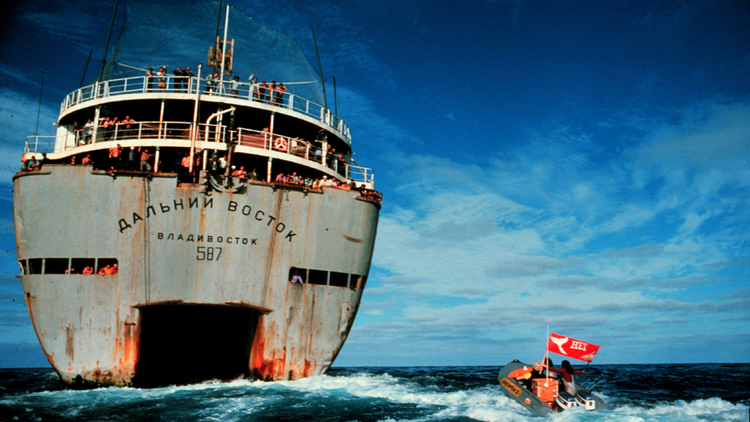
How To Change The World
classified 15Please note: This was screened in Sept 2015
Fresh from picking up the Environment Award at Sheffield Doc/Fest this is the fascinating story of the early years of the world's biggest activism organisation, Greenpeace.
In 1971 a group of young activists set sail from Vancouver in an old fishing boat. Their mission? To stop Nixon's atomic bomb tests in Amchitka, a tiny island off the west coast of Alaska. It was from these humble beginnings that the global organisation that we now know as Greenpeace was born. Chronicling the fascinating genesis of the modern environmental movement, it tells the story of eco-warrior Robert Hunter and how he, alongside a group of like-minded and idealistic young friends in the '70s, would be instrumental in altering the way we now look at the world and our place within it.
The film also explores the development of the 'mindbomb', an image that sends a collective shock through the world leading to action. The first 'mindbomb' was captured on grainy, now forty-year-old footage: it was of a Russian whaling ship bearing down on two skinny hippies in a little rubber speedboat who are trying to protect a whale, too exhausted to dive, a harpoon flying into view, passing just a few metres over the heads of the men and smashing into the back of the whale. Within days these images became iconic newsreel, shocking the western world with the brutality of the annual whale hunt and that was the moment that launched the modern ecology movement. The founders of Greenpeace were some of the first to understand the power of a viral image to influence environmental change.
But, as the group's pioneering approach was making waves, their ecological purpose became endangered by internal squabbling and power plays. How To Change The World tracks this bumpy journey from its Canadian birth to international status, and examines the world of activism itself.
Check out this super short animation about why we should all contribute to building a better world, created by Katy Davis for the DepicT! short filmmaking challenge 2014:
